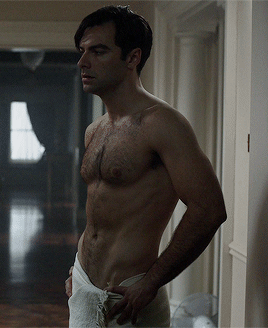This is going up a little later than I hoped it would, but this is everything I got up to in December!
by Lewis Carroll
by Rachel McMillan
by Barbara Jean Hicks and Brittney Lee
by Aaron Blabey
by Holly Martin
by Sarah Waters
by Susan Bordo
by Becky Chambers
by Holly Martin
by Noelle Stevenson
December was quite a varied reading month! I was hoping to fill my December with festive, wintery reads, but the three Christmassy reads I read (two of which I DNF'd) I really, really didn't like, and it just bummed me out. So instead I read whatever I felt like reading, and I ended up reading some really brilliant books alongside the not so great ones. My highlight of the month was definitely The Long Way to a Small, Angry Planet, which now has a firm spot on my list of favourite books.Unless you've been living under a rock, you'll know that the new film in the Star Wars franchise was released in December. In all honesty when I first heard they were making a new Star Wars film, I was just indifferent; I don't dislike the franchise, but I'm not obsessed with it either. I have gotten more interested in sci-fi over the years, but I'm still much more of a Harry Potter and Lord of the Rings girl.
Then I was weak for marketing ploys. I kept seeing the trailer and friends of mine kept saying it was a brilliant film, so in the end I figured I might as well go and see it - especially while it's still in the cinema. I have to admit I did really enjoy it! Will I buy it when it's released on DVD? I don't know, but probably. If nothing else it was pretty fantastic to see a leading lady in such a huge franchise; Rey's a brilliant heroine, and I loved Finn.
I also watched the three-part adaptation of And Then There Were None on the BBC, which had a wonderful cast including actors such as Charles Dance, Anna Maxwell Martin and Miranda Richardson. Aidan Turner was also in it, and spent one scene in nothing but a towel. It was a good scene.
 |
| hnnnggg |
by Rachel McMillan
by Barbara Jean Hicks and Brittney Lee
by Sarah Waters
by Susan Bordo
by Becky Chambers
So it was Christmas and New Year in December. Obviously. Thanks for pointing that out, Jess.
I spent Christmas Day with my parents; it was a really nice day with a delicious dinner and lots of lovely presents. I was really pleased that my parents liked the things I gave them, and I got some amazing presents, too, including a pile of new books. I got some wonderful presents from Natalie @ A Sea Change and Mikayla @ Mikayla's Book Shelf, and I recommend checking out both of their blogs!
If you're interested, you can check out the books I got for Christmas here!
I spend every New Year with my best friend, Laura, who I've known since the two us were ten years old. Unfortunately Laura lives in York, which is a beautiful city but one of the cities that was hit by floods at the end of 2015. I spent New Year's with my family instead, which was nice, but it didn't feel like New Year without Laura. Hopefully I can visit her soon!
I also ended up getting offered a new job in December! I'm now a Sales and Marketing Assistant at the University of Wales Press, a temporary position until the beginning of April - I'm pleased to have another job, it means I can keep earning money (and the pay's actually better than my last job) but I'm still hoping to get a job in England as soon as I can. Wales is lovely, but it's not quite home to me.
Mallory @ The Local Muse's A list of Rejected Thesis Sentences
Rinn @ Rinn Reads' I Don't Get 'Book Boyfriends'
Mikayla @ Mikayla's Bookshelf's Things I've learned as a book blogger

















